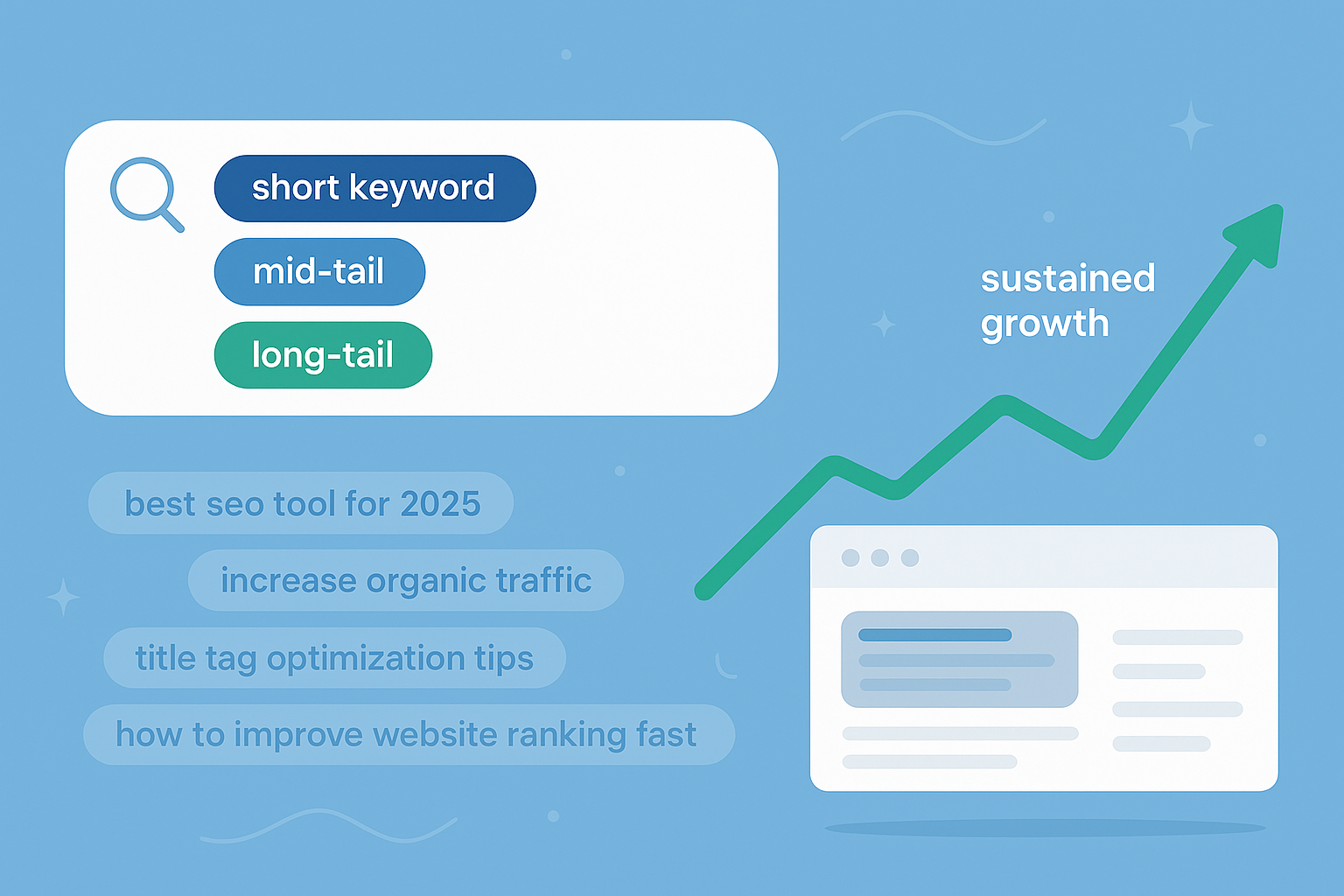Long-Term Keywords in SEO: Building Sustainable Visibility

What Are Long-Term Keywords?
Long-term keywords (often referred to as evergreen keywords) are search terms that:
Maintain consistent search volume over time
Aren’t tied to trends or seasonal spikes
Provide steady traffic and rankings year after year
Example:
Evergreen keyword → “how to improve website speed”
Short-lived/trending keyword → “SEO tips 2025”
Why Long-Term Keywords Matter
Sustainable Traffic → Unlike trending topics, evergreen queries keep sending visitors long after you publish.
Compounding Value → The longer your page ranks, the more backlinks and authority it attracts.
Lower Maintenance → You only need occasional updates (stats, screenshots, tools) to keep content fresh.
Trust & Authority → Covering timeless topics positions you as a reliable resource in your niche.
How to Find Long-Term Keywords
Keyword Tools: Use Ahrefs, Semrush, or Ubersuggest to spot stable search volume over time.
Google Trends: Compare interest levels across years to ensure the topic isn’t seasonal.
AnswerThePublic / AlsoAsked: Find recurring questions users always ask.
Competitor Analysis: Look at evergreen blog posts ranking for years.
Optimizing for Long-Term Keywords
Create Evergreen Content → How-to guides, definitions, tutorials, and case studies.
Use Clear On-Page SEO → Title tags, H1, H2s with primary keywords.
Update Regularly → Refresh with new data or screenshots every 6–12 months.
Add Internal Links → Connect evergreen content to trending or new posts.
Target Semantic Variations → Cover synonyms and related queries to future-proof against algorithm updates.
Examples of Long-Term Keywords in Action
“best project management software” → relevant every year
“how to write a resume” → timeless, always in demand
“benefits of meditation” → consistent traffic across niches
Conclusion
Focusing on long-term keywords is one of the most reliable ways to build sustainable SEO success. While trends fade, evergreen topics ensure your site continues attracting traffic, authority, and conversions.